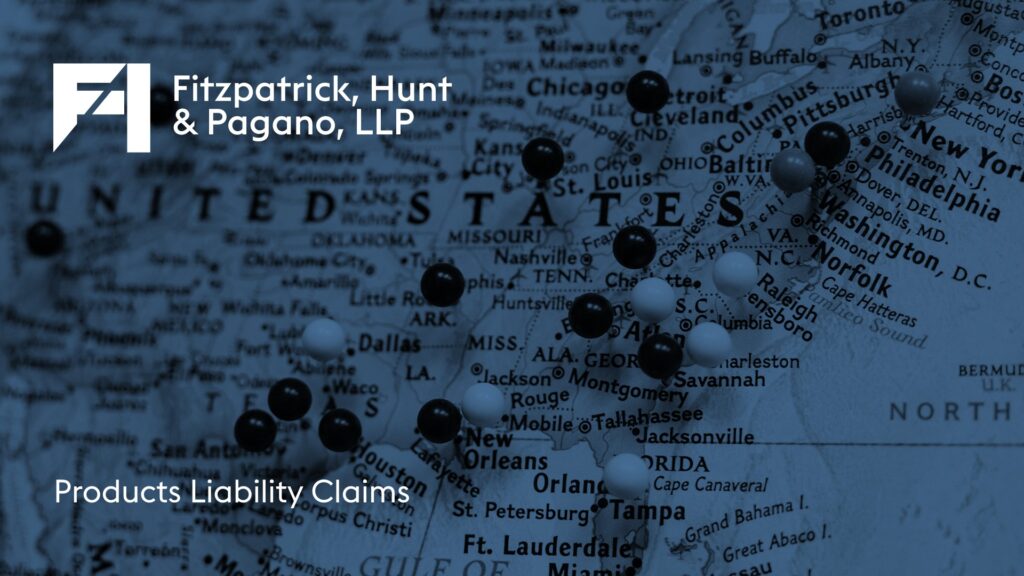Introduction
It is not uncommon for a plaintiff to engage in “forum shopping” to initiate litigation in a state court which has historically treated claims against corporations favorably. This favoritism might be a product of the procedural laws of the jurisdiction, the prejudices of the judiciary or the general makeup of the prospective jury. In any case, the general impression of defense counsel is that federal courts are the friendlier litigation forum and therefore, when possible, will attempt to remove the case to federal court. A typical basis for initiating a case in or removing a case to federal court is to establish diversity of citizenship between the parties—otherwise known as diversity jurisdiction. Diversity jurisdiction, a type of subject matter jurisdiction, is granted by the US Constitution, Article III Section 2, and codified by statute in 28 USCA § 1332 as well as the 14th Amendment to the Constitution. Section 1332 reads as follows:
(a) The district courts shall have original jurisdiction of all civil actions where the matter in controversy exceeds the sum of $75,000, exclusive of interest and costs, and is between-
1. Citizens of different States;
The diversity must be “complete” to beget federal jurisdiction. In other words, two or more parties cannot be from the same state. For example, a citizen of New Jersey sues a corporation which is determined to be a citizen of Pennsylvania. If an additional party on either side is a citizen of either New Jersey or Pennsylvania, diversity cannot be established. In Lincoln Property Company v. Roche, 546 U.S. 81 (2005) the United States Supreme Court explained this rule:
…we have read the statutory formulation ‘between…citizens of different States’ to require complete diversity between all plaintiffs and all defendants.1
The complete diversity rule is intended to promote the purpose of diversity jurisdiction: to provide a federal forum for important disputes where state courts might favor, or be perceived as favoring, home state litigants. For example, if a case is kept out of federal court for lack of complete diversity because there are parties from the same state on both sides of a dispute, a state court acting in favor of one citizen of that state would necessarily have to disfavor the other citizen. Diversity jurisdiction is perceived to alleviate any bias concerns in litigating in state court.2
If a plaintiff files a case in federal court based on diversity jurisdiction, a defendant can challenge the action through a motion to dismiss for lack of personal jurisdiction via Fed. R. Civ. P 12(b)(2). If a plaintiff initiates a case in state court, a defendant may attempt to remove the case to federal court, where it feels a challenge to personal jurisdiction will be looked upon more favorably, via diversity jurisdiction. In either case, a plaintiff must prove that the federal court, sitting in diversity jurisdiction, has personal jurisdiction over the defendant(s) to sustain the matter in that particular court. For corporate defendants defending against products liability claims, the personal jurisdiction analysis can be quite fact specific and subject to incredible nuance.
General Jurisdiction
As noted above, diversity jurisdiction requires a determination of party citizenship. But citizenship is not only relevant to diversity jurisdiction—it is pertinent to personal jurisdiction as well. 3 As 28 U.S.C. § 1332 provides: “a corporation shall be deemed a citizen of every State and foreign state by which it has been incorporated and of the State or foreign state where it has its principal place of business.” General jurisdiction, a type of personal jurisdiction exercised when a defendant is “at home” in the forum state, so too can be satisfied by this definition of citizenship.4
The idea of general jurisdiction is that by targeting such extensive connections with the forum state, a defendant can be sued for any claim regardless of whether the claim arose out of the defendant’s connections with the forum state and such a suit would still align with constitutional fairness and due process principles. But with such a broad grant of jurisdiction comes the potential for abuse by plaintiffs who seek to essentially “hale” a defendant into court in the forum state “to answer for any of its activities anywhere in the world.”5 Given this concern, the analysis of general jurisdiction has evolved over time from its original, rigid definition to include a more comprehensive analysis of the corporation’s activities within the forum.6
Thus, the rule for defendants who were not incorporated or whose principal place of business was not in the forum state has evolved to a test of whether the defendant’s “affiliations with the forum state [were] so continuous and systematic as to render [it] at home.”7 Plaintiffs have attempted to stretch the limits of this rule. For example, the products liability plaintiffs in Helicopteras asserted that mere purchases in the forum state of defendant’s products, occurring at regular intervals, were enough to warrant general jurisdiction over nonresident defendant so as to submit it to claims unrelated to such purchases.8 The Court disagreed and declined to extend general jurisdiction.
The United States Supreme Court set forth a more restrictive interpretation of these contacts which might allow jurisdiction to be established beginning with Goodyear Dunlop Tires Operations, S.A. v. Brown, and continuing through Daimler AG v. Bauman.9 Daimler effectively curtailed the “substantial, systematic, and continuous” rule, concluding a corporation’s activities must render it “at home,” and that to require any less would be “unacceptably grasping.”10 The Second Circuit opined on this set of cases, stating that while Goodyear seemed to have “left open the possibility that contacts of substance, deliberately undertaken and of some duration, could place a corporation ‘at home’ in many locations,” Daimler “all but eliminated that possibility…more narrowly holding that aside from the truly exceptional case, a corporation is at home and subject to general jurisdiction only in its place of incorporation or principal place of business.”11
This was great news for corporate defendants being sued for products liability claims, because the substantial and systematic “direction of [a defendant’s] products” into the forum state was no longer sufficient to establish general jurisdiction.12 Other factors to consider in evaluating a defendant’s “at home” status include whether the defendant: has any directors, officers, employees, agents, or local residents assigned in the state; solicits or conducts business in the state with respect to the product at issue; has entered into any contracts in the state regarding the product at issue, and, has established channels for advising users in the state of the product or provides warranties in the state related to the product. Specifically in products liability actions against an aircraft component manufacturer, a defendant’s “shipment of an engine to the forum state” has been held to fall far below the “at home” threshold.13 Further, even where a defendant corporation had thirteen active business and employed nearly 5,000 people in the forum state, the court declined to establish general jurisdiction because these operations were a small fraction of defendant corporation’s national and worldwide operations. Ainette v. Mkt. Basket Inc. at 20; see Minholz v. Lockheed Martin Corp., 227 F.Supp.3d 249, 261-62 (N.D.N.Y. 2016).
Due to general jurisdiction’s “more demanding minimum contacts analysis” commensurate with the consequences of establishing such jurisdiction, a court is much more likely to find specific jurisdiction over a given defendant.14 Justice Ginsburg, writing for the majority in both Goodyear and Daimler, stated as much, referencing general jurisdiction’s “sprawling view” which, requires a heightened standard so as to not unfairly subject a corporate manufacturer to “any claim for relief, wherever its products are distributed.”15 To allay every plaintiff’s fear, Justice Ginsburg then noted that where general jurisdiction is lacking, certain contacts with the forum state may “bolster an affiliation germane to specific jurisdiction.”16
The courts’ history of general jurisdictional analysis has certainly not been confined to discussions relating to a defendant’s state of incorporation and principal place of business, and the cases referenced above have collectively defined the “paradigm…bases for general jurisdiction.”17 In this modern era of jurisdictional analysis, U.S. courts have tailored the standard to extend general jurisdiction only where absolutely warranted, and not in scenarios where granting such jurisdiction renders “at home” synonymous with simply placing a product on the market.
Specific Jurisdiction
Where a non-resident defendant’s activities with the forum state have not been so pervasive to achieve general jurisdiction, a plaintiff may be able to establish personal jurisdiction through specific jurisdiction. While both forms of personal jurisdiction require “certain minimum contacts with [the state] such that maintenance of the suit does not offend traditional notions of fair play and substantial justice,” specific jurisdiction contact standards are far less demanding.18 This is because specific jurisdiction only subjects the defendant to suits relating to its contacts with the forum state.19
The original framework for specific jurisdiction was set out in International Shoe.20 There, the Supreme Court found specific jurisdiction where the in-state activities “had not only been continuous and systematic, but also g[a]ve rise to the liabilities sued on.”21 However, International Shoe in no way mandated “continuous and systematic” contact in specific jurisdiction to conform with fairness principles. Rather, it opined that “‘the commission of some single or occasional acts of the corporate agent in a state’ may sometimes be enough to subject the corporation to jurisdiction in that State’s tribunals with respect to suits relating to that in-state activity.”22
But not all contacts regarding a given forum state lend themselves to a finding of specific jurisdiction. Moreover, the defendant must have activities with the forum state itself rather than simply contacts with a plaintiff residing in that forum.23 Since International Shoe, the inquiry for specific jurisdiction has been defined by this three-part test:
(1) the defendant must have purposefully availed himself of the privilege of conducting business in the forum state or purposefully directed his activities at the state; (2) the alleged injury must have arisen from the defendant’s forum related activities; and (3) the exercise of jurisdiction must comport with traditional notions of fair play and substantial justice.24
The purposeful-direction or purposeful-availment prong largely depends on the type of claim at issue. Id. Purposeful direction requires “that the defendant allegedly ha[s] (1) committed an intentional act, (2) expressly aimed at the forum state, (3) causing harm that the defendant knows is likely to be suffered in the forum state.”25 Purposeful availment is a more general standard that evaluates whether the defendant “performs some type of affirmative conduct which allows or promotes the transaction of business within the forum state.”26 In products liability actions, the tests for both purposeful-direction and purposeful-availment have been applied.27 Many courts end up applying a combination of the two to make a specific jurisdiction determination.
In manufacturer products liability cases, a “stream-of-commerce” theory has been applied to determine whether a defendant’s contacts with a state fulfill the purposeful direction prong of fairness and due process. For example, in Lewis v. Conagra Brands, Inc., the court found specific jurisdiction in a forum state where defendant sold its product to an Illinois wholesaler that then regularly distributed the products to the forum state retailers and defendant indirectly derived substantial financial benefit from sales in the forum state.28 In Simons v. Arcan, Inc., the court found specific jurisdiction where defendant-manufacturer sold its product to forum- state-based non-resale retailers, shipped products directly into the state, and had a manufacturer’s agent whose goal was to increase forum state sales.29 In D’Jamoos ex rel. Estate of Weingeroff v. Pilatus Aircraft Ltd., the court declined to grant specific jurisdiction where the presence of defendant’s product in the forum state was a result of “fortuitous circumstances,” and not because defendant placed it product into that state through the “stream-of-commerce.”30 These holdings vary greatly due to major and minor factual discrepancies, but such caselaw is illustrative of the large range of contacts that can give rise to specific jurisdiction. Even where a manufacturer has a sizeable presence in a forum state, a finding of specific jurisdiction is precluded if the cause of action did not arise out of the manufacturers’ business in that state.31
Since personal jurisdiction inquiries are highly fact specific and intensive, some courts have permitted “jurisdictional discovery,” where the court allows the parties to undertake discovery of facts relevant to the jurisdictional determination. This discovery—which is said to be permissible, but not mandated, where “issues arise as to jurisdiction or venue”—typically follows a defendant’s motion to dismiss for lack of jurisdiction under Fed. R. Civ. P. 12(b)(2) and is requested by a plaintiff.32 However, the legal standards regarding the availability of jurisdictional discovery “are not well defined” and parties are given “scant guidance regarding what the scope of jurisdictional discovery should be once it is ordered.”33 For example, some courts order discovery only after a plaintiff has made a prima facie case of jurisdiction, whereas others simply require “a sufficient start toward establishing personal jurisdiction.34 Unlike class discovery, a routine and more well-established jurisdictional discovery, jurisdictional discovery based on personal jurisdiction is relatively unexplored and somewhat rare due to its complexity and potential risks.35
Conclusion
Historically, corporate defendants prefer litigating in federal forums. Therefore, when a plaintiff files a case in state court, defendants will often seek removal to theoretically maximize their chances of a successful defense. One avenue of defense once in federal court is to challenge personal jurisdiction. Personal jurisdiction can be either general, which subjects a defendant to any claim brought in the forum state, or specific, which subjects a defendant only to claims which arise out of the defendant’s activities in the forum state. Because general jurisdiction exposes a defendant to an exponentially greater range of claims in the forum state, it requires proof of substantially greater contacts with the forum state than specific jurisdiction—so much so that the defendant is considered “at home” in that state.
In products liability actions, a defendant manufacturer’s mere direction of its products into the stream-of-commerce is not enough to subject it to general jurisdiction. However, if that defendant placed its products into the stream-of- commerce knowing that those products are regularly sold in a particular forum state, that may be enough to establish specific jurisdiction. Ultimately, there are numerous factual considerations in a jurisdictional analysis, and in some cases, additional discovery may be granted to aid in a jurisdictional determination. Regardless of the forum, products liability defense counsel should be prepared to set forth jurisdictionally mitigating facts when challenging personal jurisdiction.





